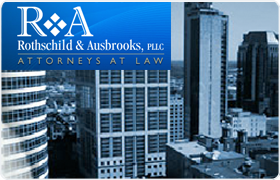Brentwood Collection Lawyer, Tennessee
Sponsored Law Firm
-
 x
x

Click For More Info:
-
Rothschild & Ausbrooks, PLLC
1222 16th Ave. South, Suite 12 Nashville, TN 37212» view mapBankruptcy Filing, Chapter 7, Chapter 13 You Are Not Alone. We Can Help.
Our law firm encourages communication. We respond to calls and e-mails promptly. This is your case, and you will be involved every step of the way.
800-966-8531
FREE CONSULTATION
CONTACTPhilip Leslie Robertson
Construction, Lawsuit & Dispute, Trademark, Collection
Status: In Good Standing
John R Cheadle
Insurance, Business, Credit & Debt, Collection, Bankruptcy & Debt
Status: In Good Standing
Michael Schmitt
Alcoholic Beverages, Disability, Constitutional Law, Collection, Insurance
Status: In Good Standing

 Mary Ausbrooks Nashville, TN
Mary Ausbrooks Nashville, TN Contact UsCall or Email
Contact UsCall or Email LinkedIn
LinkedIn
